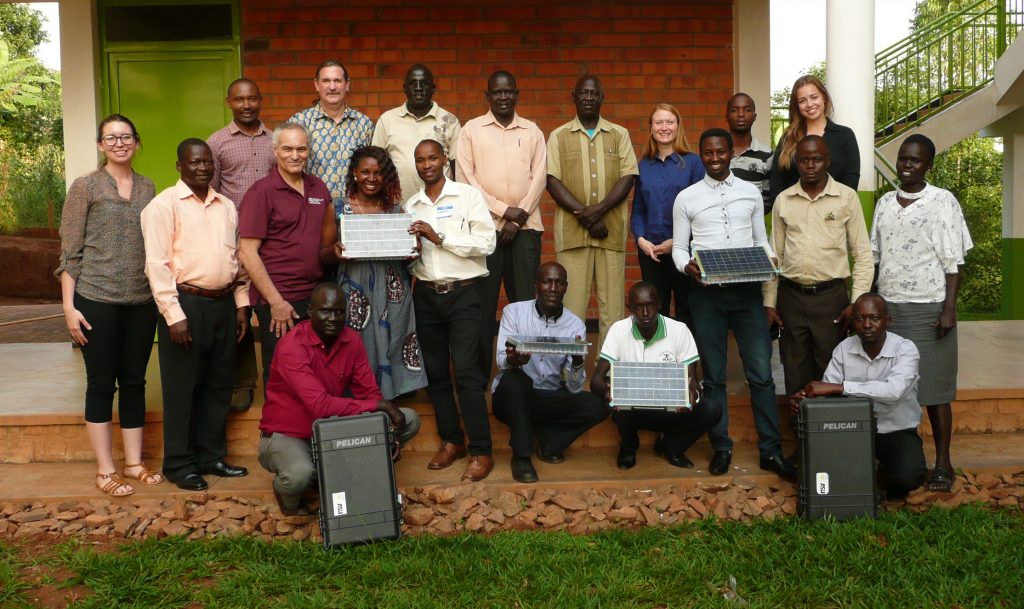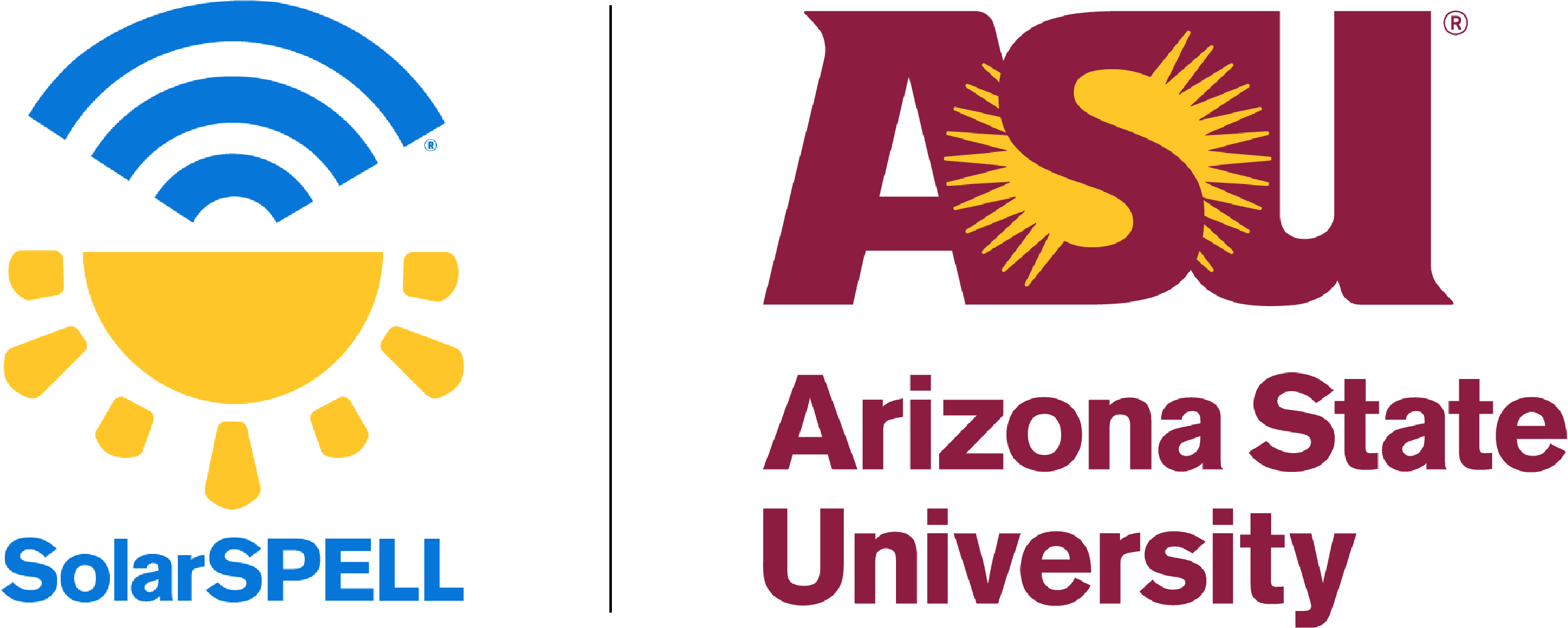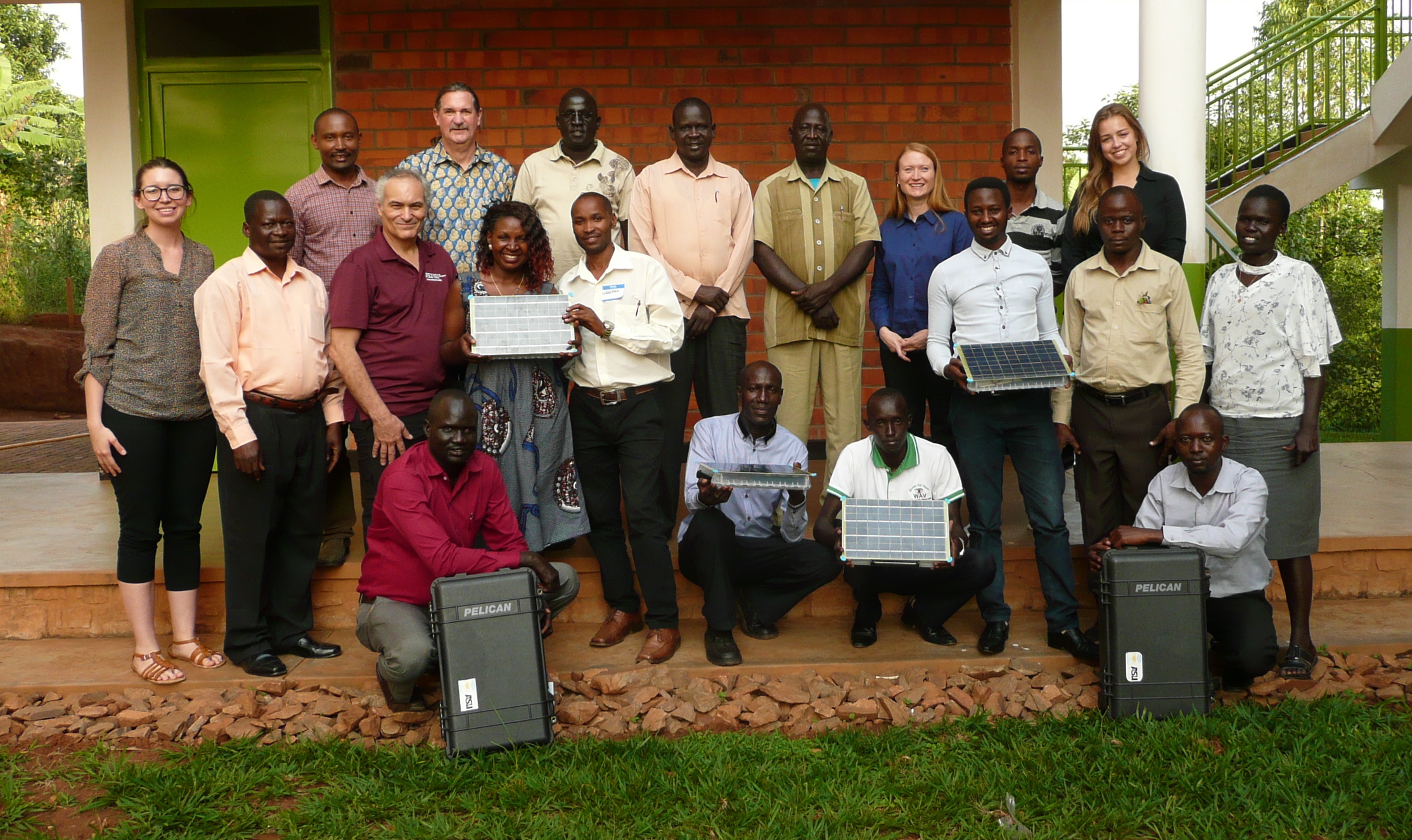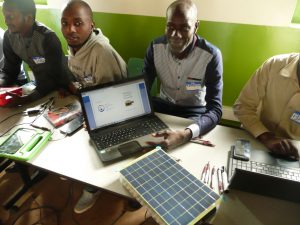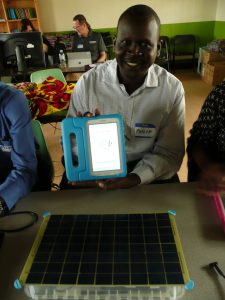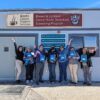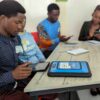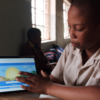On Jan 15 & 16, 2018, the SolarSPELL team held a two-day workshop and training with 10 teachers and administrators from South Sudan, representing Africa Educational Trust and Empower Kids South Sudan, as well as five teachers from Hope Haven primary school in Rwanda.
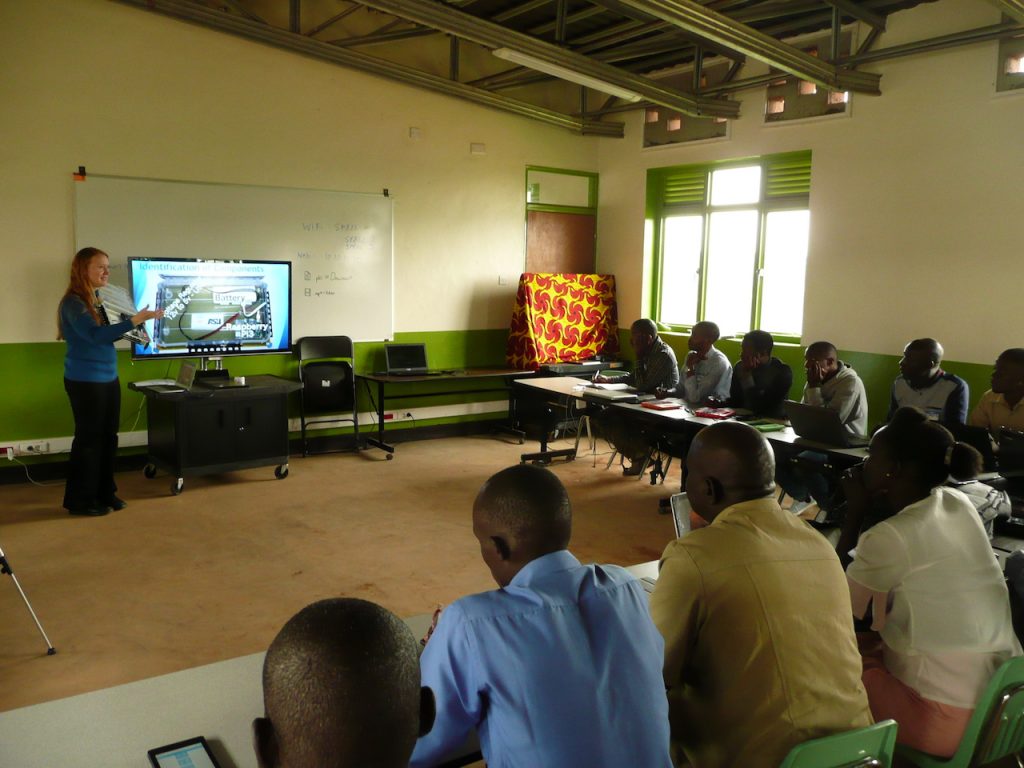
The workshop launched with a background and overview of the SolarSPELL project.
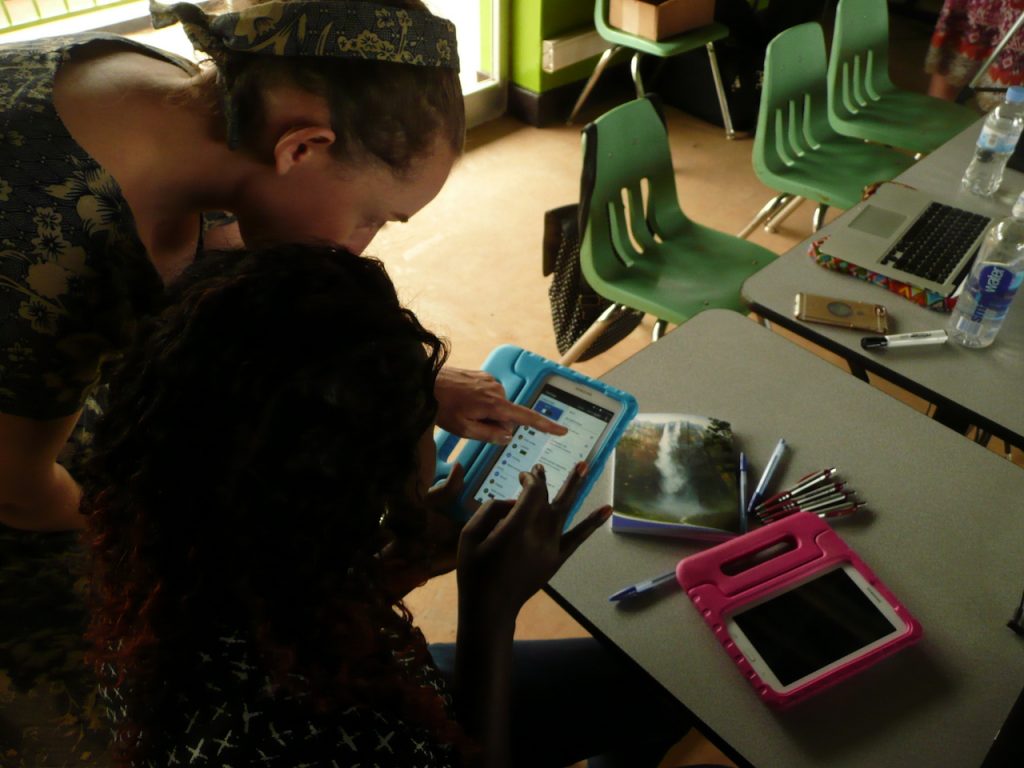
Next, the workshop participants connected to the SolarSPELL website with the tablets they would be using at their schools, as well as with their phones and laptops.
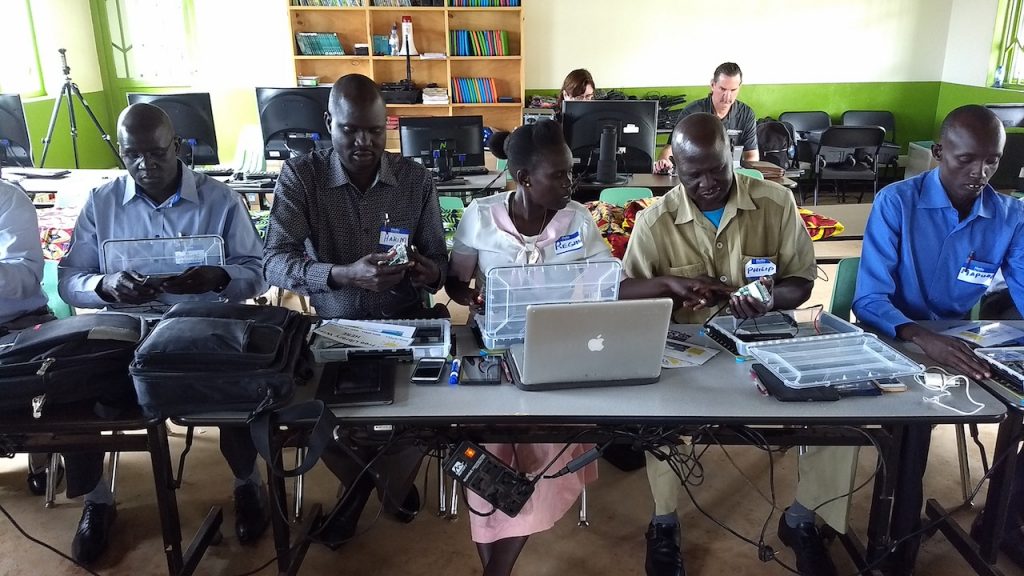
Subsequently, the SolarSPELL libraries themselves were passed around, so that each person could get a feeling for how the technology actually worked, and how simple the system actually is.
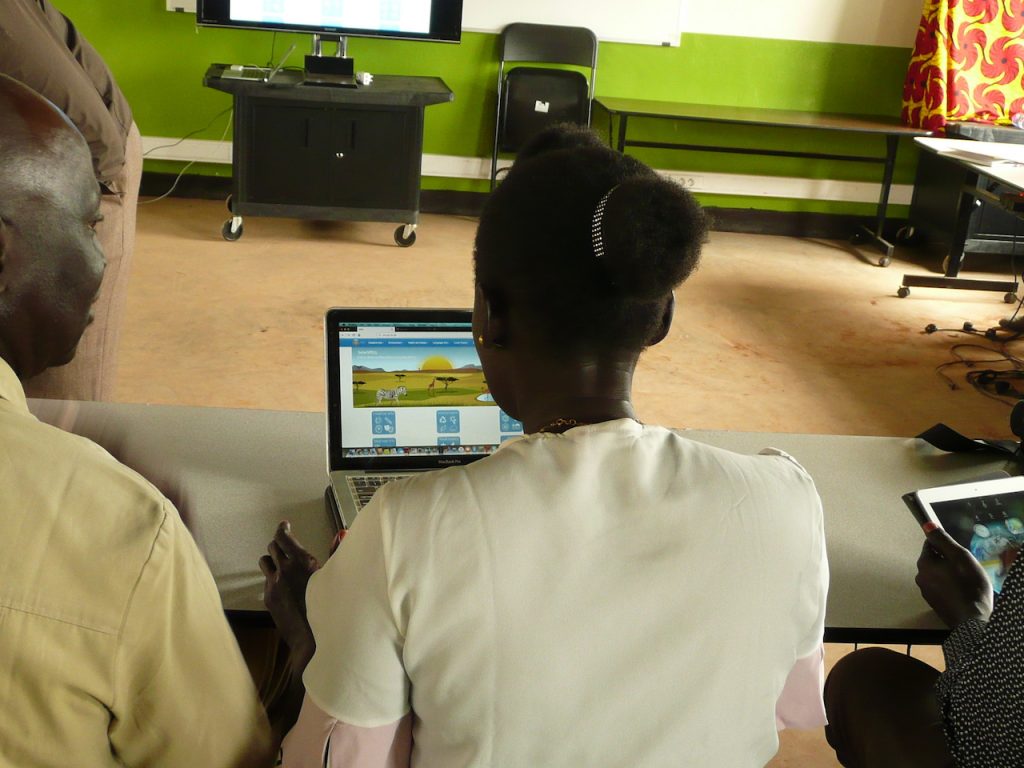
The first day ended with an overview of the content available in the library, and a scavenger hunt from among the library’s content, to familiarize everyone with what is available. The competition was intense, and there were prizes for the winners that made the hard work of search worth the effort!
- Toroyo finds the book he authored on the library!
- Philip finds the journal he wrote on the library!
The next morning started out with the activity that turned out to be the true highlight for me: we asked each participant, after surfing around the library just a bit more, to identify their top five favorite items that they looked forward to using as teaching tools as they returned to their schools. The favorite items identified as we went around the room nearly brought me to tears, for a number of reasons. Some of the content that has been curated, I had hoped would be found useful, but to hear the teachers calling it out specifically as information they couldn’t wait to use to teach their students, brings a whole new feeling of fulfillment. In other cases (and this happened four times!), it was because a student or colleague of mine had specifically created the “favorite”-selected content themselves, and to know that their work would be having such an impact, so far around the world from Phoenix, is extremely impactful.
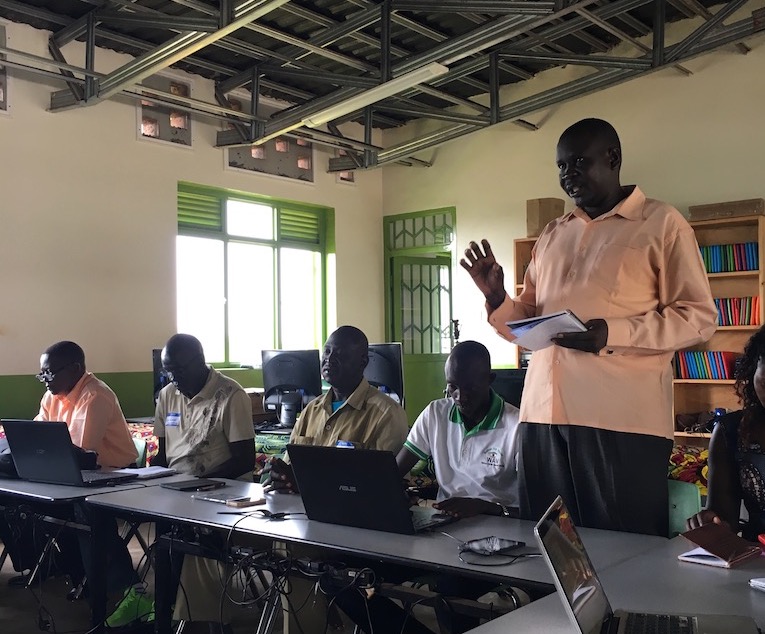
Also, to hear some of the teachers’ creative ways of thinking about how they would adopt and adapt this content for their teaching (using music to teach about math!! using children’s art and physical activity to teach about local culture and history!!) truly made me excited for the potential of SolarSPELL in schools. Having a library—having access, freely, to information curated for study, learning, and enjoyment—can lead to new, creative, innovative ways of thinking and of doing.
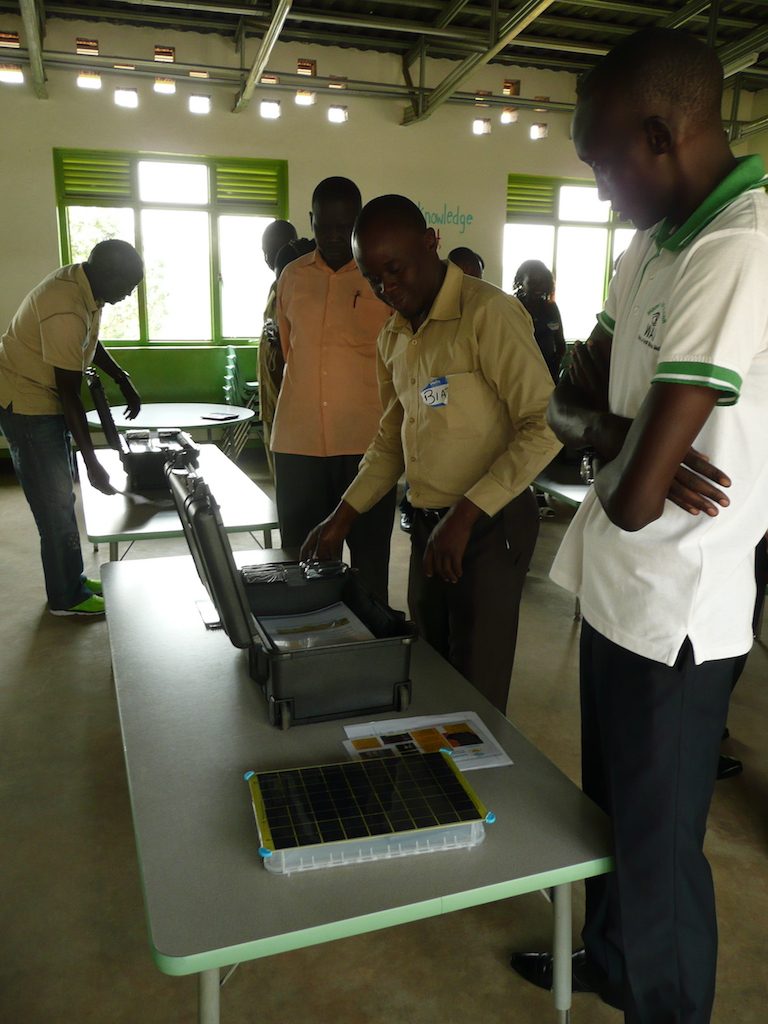
Following this, the workshop transitioned to training on the SolarSPELL Lab, which the South Sudanese participants would be bringing back to their schools and using. These turnkey labs contain a SolarSPELL, six tablets, two batteries, a folding solar panel, and all fit within a rugged, waterproof rolling (carry-on sized) suitcase. In other words, it’s a method to have six solar-charged tablets all powered up and ready to access the SolarSPELL library’s content, even if the school has no electricity.
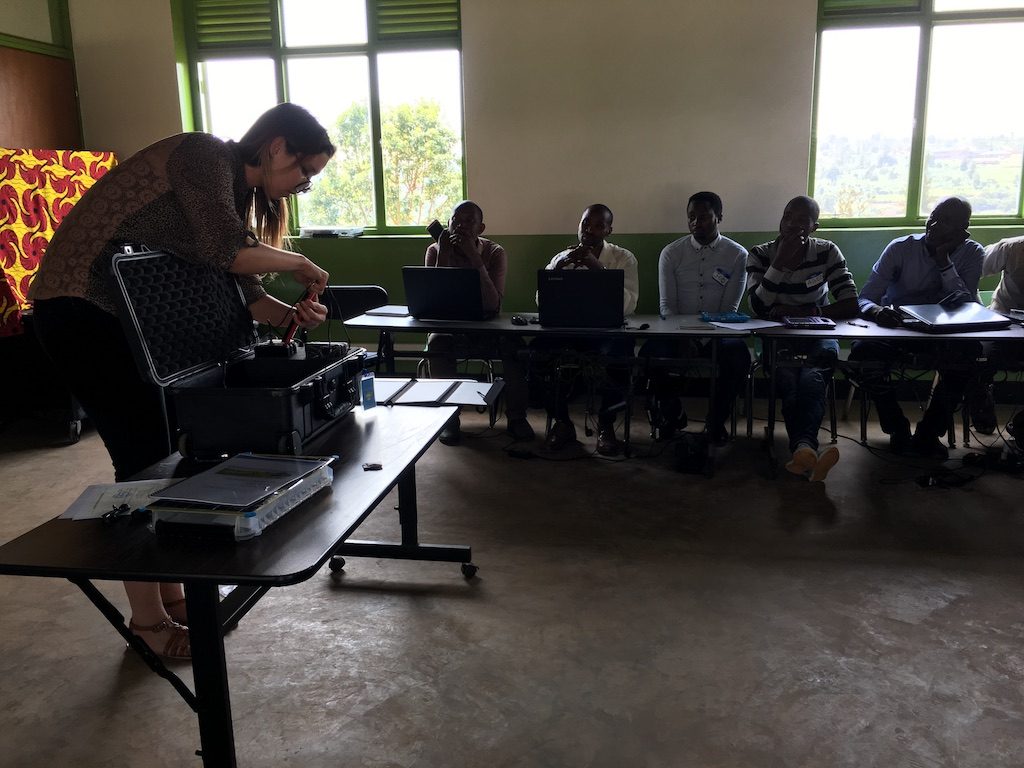
Like the SolarSPELL itself, these labs were also launched by university students, innovating in the context of a project-based course, and now this innovation is out in the field, being used and bringing localized educational content to places that would otherwise not have access to it. Brittany Blevins was one of the students from ASU who designed and built these labs, and, coming full circle from the classroom, she had the opportunity to lead the demonstration, explanation, and training for the teachers, on these labs.
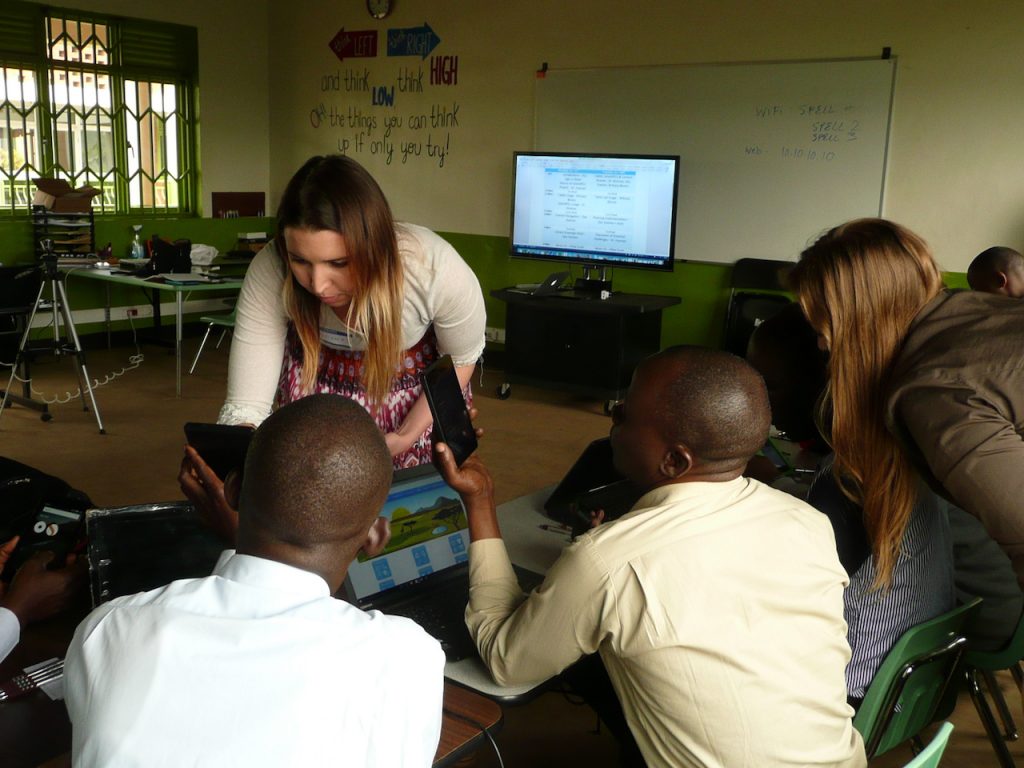
The workshop’s final activity was for the teachers and administrators to formulate a workplan to introduce the SolarSPELL libraries and labs into their schools. To do this, they needed to articulate what the SolarSPELL digital library was all about, identify who the main stakeholders were and how they would be introduced to the library, list potential trainings they would hold with the library, and finally, describe methods they would employ to know whether the library was having an impact in their schools.
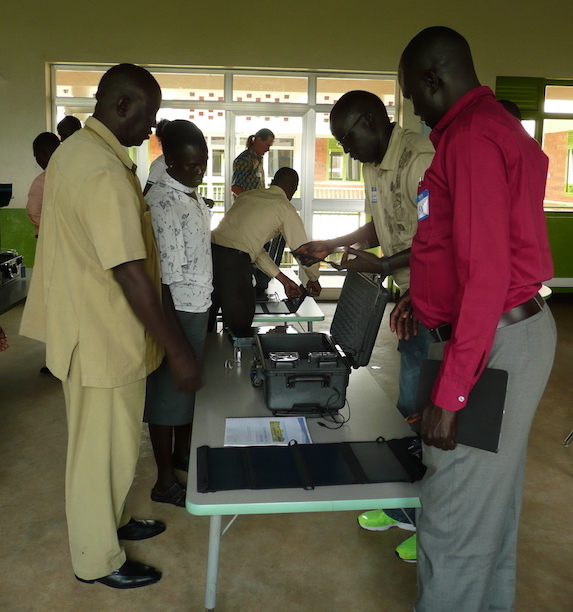
After a ceremony where the participants received a certificate of workshop completion, the entire group posed for photos. Normally, taking this group shot after a training is like herding cats, but this group didn’t seem to want the moment to end, and kept forming new small groups of different participants and trainers to take pictures of—it was a joyful ending to an incredibly productive and positive workshop. We look forward with great anticipation to see whether these libraries and labs will be useful in their new homes/schools!
